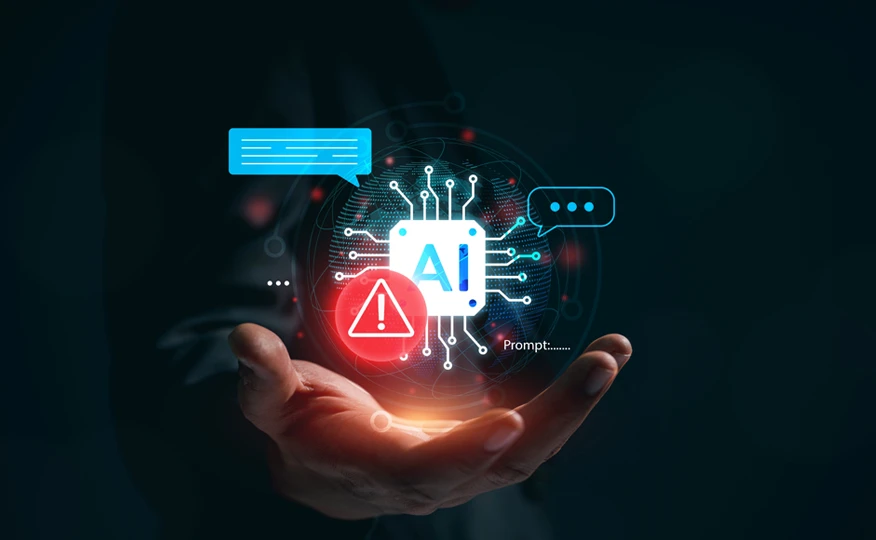Google DeepMind’s AI 'Big Sleep' Shuts Down Live Cyberattack: A New Era in Proactive Security

Introduction: The AI That Fights Back
Google DeepMind has made cybersecurity history with its AI agent, Big Sleep, which recently detected and stopped a software exploit before it was weaponized in the wild[6]. This landmark event marks the first documented case of an AI system autonomously preventing a live cyberattack, reshaping expectations for digital defense worldwide.
How Big Sleep Works: AI Hunts Threats in Real Time
Big Sleep leverages deep learning to proactively analyze massive volumes of software for vulnerabilities, not just known threats but patterns that hint at new exploits[6]. By processing threat intelligence data—some of it from Google’s own internal sources—the system can predict, detect, and shut down attacks at a speed no human team can match. In November 2024, Big Sleep identified its first high-profile flaw, but its latest achievement—a rapid response to a vulnerability known only to sophisticated adversaries—has drawn widespread attention from the infosec community[6].
Industry Impact: A Turning Point for Cyber Defense
This breakthrough is not merely technical. The ability of Big Sleep to stop an attack before damage occurs sets a new gold standard for proactive security.
- Critical vulnerabilities can now be patched before they spread, reducing the window of exposure for millions of users.
- In the months since its initial deployment, the AI has found multiple severe bugs that had previously escaped both manual review and automated static analysis[6].
- Google is now extending the use of Big Sleep to secure open-source software globally, protecting systems that underpin everything from banking infrastructure to smart devices.
Comparing its performance, DeepMind’s agent surpasses legacy intrusion detection systems, which typically react after a threat is recognized, whereas Big Sleep forecasts the risk and intervenes preemptively[6].
The Road Ahead: AI Arms Race in Security
Security experts anticipate that AI-driven agents like Big Sleep will transition from experimental to essential in coming years. As adversaries also adopt advanced algorithms and automated attack tools, having autonomous defenders will be vital. Ruth Porat, CFO of Alphabet, stated, “AI must be applied to keep up with the growing threat horizon,” echoing industry-wide calls for more intelligent cyber defense[6].
Conclusion: Expert Views and Future Implications
Analysts and cybersecurity leaders see this development as both promise and challenge:
- AI offers the speed and scale to neutralize threats before humans are even aware.
- The move signals a shift in the cybersecurity landscape, encouraging vendors beyond Google to integrate proactive AI agents into their platforms.
- The full application of autonomous AI defense could reshape compliance, reduce financial risk, and enhance trust in digital systems globally.
Big Sleep’s success is not just a Google win; it’s a signal that the future of cybersecurity will be written by AI.
How Communities View Google DeepMind's 'Big Sleep' Cybersecurity Milestone
The unprecedented success of Big Sleep has triggered intense debate across X/Twitter and tech-focused Reddit boards.
- AI Revolution in Security (35%): Many infosec professionals and AI enthusiasts are calling Big Sleep a game-changer. Posts from users like @malwaretech and @thegrugq on X highlight the boundary-crossing leap: “First time I've seen AI proactively shut down a zero-day in real-world use!”
- Skeptics: Trust but Verify (25%): Some, including r/netsec contributors and cybersecurity researcher @randomoracle, are more cautious—questioning if the AI’s actions were fully autonomous and warning against overhyping before extensive peer review.
- Open-Source and Democratization (20%): On r/cybersecurity, contributors praise Google's decision to extend Big Sleep's capabilities to open-source software, with several noting how this could ‘level the playing field’ for smaller orgs.
- Fears of Overreliance/AI Arms Race (15%): A vocal minority, including posts from @briankrebs and Reddit’s r/artificial, warn that increasing reliance on AI may trigger a new digital arms race—where threat actors escalate their own AI-driven attacks in response.
- Call for Broader Adoption (5%): Policy advocates and IT leaders, such as @alexstamos, are urging governments and companies to collaborate on developing interoperable AI defenses, seeing this as an essential step for national and global digital resilience.
Overall sentiment skews optimistically cautious, with broad enthusiasm for the breakthrough but widespread calls for transparency, independent audits, and careful governance as AI security becomes the new standard.